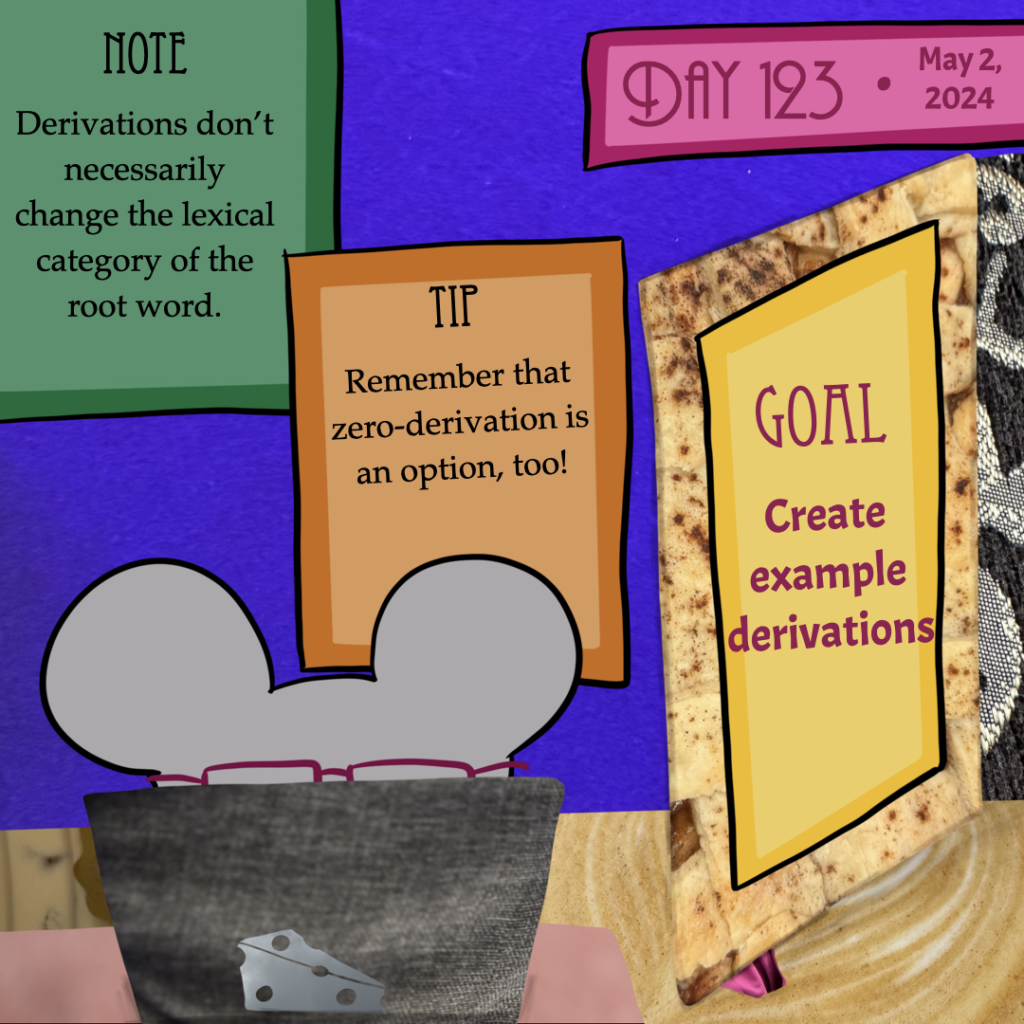
Goal: Create example derivations
Note: Derivations don’t necessarily change the lexical category of the root word.
Tip: Remember that zero-derivation is an option, too!
Work focus: Create/Make/List
Create a handful of derivational forms for your language (or create more compounds if your language lacks derivations). Some common derivational affixes change the lexical category of the root word:
- verb > agentive noun (e.g. paint > painter)
- verb > patientive noun (e.g. employ > employee)
- verb > associated noun (e.g. judge > judgment)
- noun > associated verb (e.g. hospital > hospitalize)
However, derivations don’t always change the lexical category but can instead just shift the meaning. For instance, “untie” and “redo” feature derivational prefixes that do not affect the status of the root, which is a verb.
Also, don’t forget that zero-derivation (sometimes also called “conversion”) is an option, too. Zero-derivation is when a word is used as a different lexical category without any external marking indicating the shift. For instance, in “Leaves peppered the pavement,” the verb “pepper” is a zero-derived form of the noun “pepper.” Notice that as a verb, it can take on a different meaning. In the example sentence, “peppered” means the leaves are scattered here and there, dotting the pavement. In another context, “peppered” could mean someone is adding pepper, as in “She peppered the steak before searing it.”
If you decide to include zero-derivation as an option for your language, you can decide whether all nouns or verbs can participate in the zero-derivation pattern and the meanings that are assigned if they do. Just remember to include that information in your dictionary entries, especially for any meanings that aren’t predictable.
